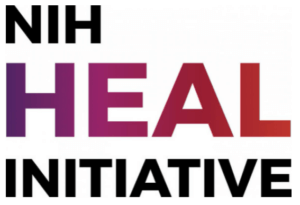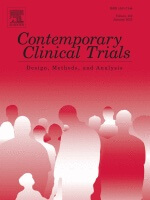In an interview at the NIH Pragmatic Trials Collaboratory Steering Committee’s annual meeting in April, Dr. Rebecca Baker, Dr. Adrian Hernandez, and Dr. Wendy Weber discussed how the PRISM program and the NIH HEAL Initiative are working together to answer questions about pain management and the national opioid public health crisis.
Baker is the director of the NIH HEAL Initiative, and Hernandez is co-principal investigator of the NIH Pragmatic Trials Collaboratory Coordinating Center, for which Weber is the NIH Project Officer.
“I think the PRISM program is a great piece of the NIH HEAL initiative,” said Weber. “The HEAL initiative has everything from basic science all the way up to what PRISM is doing, which is taking these effective interventions and actually figuring out how do you put them into the healthcare system.”
The Helping to End Addiction Long-term Initiative (NIH HEAL Initiative) is an aggressive, trans-agency effort to speed scientific solutions to stem the national opioid public health crisis. It has launched more than 600 different research projects, totaling a more than $2 billion investment.
The PRISM program (Pragmatic and Implementation Studies for the Management of Pain to Reduce Opioid Prescribing) is a component of the NIH HEAL Initiative, and the NIH Pragmatic Trials Collaboratory serves as the PRISM Resource Coordinating Center, supporting large-scale embedded pragmatic clinical trials to determine the effectiveness of non-opioid interventions for pain.
“When we talk about learning in the healthcare system, this is an area that we see is going to have continuous learning, and so, as there are new options for pain management, how do you get them implemented into practice, what are the gaps, what else is needed for these areas,” said Hernandez. “This becomes a hallmark of what we are aiming to do for the NIH Pragmatic Trials Collaboratory.”
PRISM and the NIH HEAL Initiative have developed common measures across studies in order to create a HEAL data ecosystem that will allow investigators to do meta-analyses with shared outcome measures across studies.
“One thing that we’ve learned through HEAL, especially in our focus on pain, but also for addiction, is that these conditions don’t exist in isolation, so people rarely have just pain—they have pain plus other health conditions,” said Baker. “Being able to study that in a pragmatic way and iterate around different types of patients enriches the knowledge that comes out of the study and then enables clinicians to provide great care, too.”
Through key partnerships with the NIH Pragmatic Trials Collaboratory, PRISM, and other federal partners, the NIH HEAL Initiative is now integrating the experience of patients at the outset of studies and focusing on health disparities and health inequity issues.
“If we just conduct research, publish the papers, go to academic meetings and discuss them, we’re not going to have the impact we’re hoping to have through this initiative, and so the next phase is continuing to expand our research into these domains that we weren’t able to start with at the beginning but also continue to build those partnerships for dissemination and implementation,” said Baker.
View the full interview.
See the complete materials from the 2022 Steering Committee meeting.




 The National Institute of Nursing Research (NINR) will host a webinar for its recent request for applications, “
The National Institute of Nursing Research (NINR) will host a webinar for its recent request for applications, “ The NIH HEAL Initiative℠, or Helping to End Addiction Long-Term Initiative℠, announced its intent to publish a new funding opportunity for cooperative research that will accelerate implementation of nonopioid interventions for chronic pain management in rural and remote populations. The initiative will support pragmatic, implementation, and hybrid effectiveness-implementation trials that study strategies for equitably and efficiently implementing effective interventions and evidence-based pain management guidelines in rural and remote communities.
The NIH HEAL Initiative℠, or Helping to End Addiction Long-Term Initiative℠, announced its intent to publish a new funding opportunity for cooperative research that will accelerate implementation of nonopioid interventions for chronic pain management in rural and remote populations. The initiative will support pragmatic, implementation, and hybrid effectiveness-implementation trials that study strategies for equitably and efficiently implementing effective interventions and evidence-based pain management guidelines in rural and remote communities.




